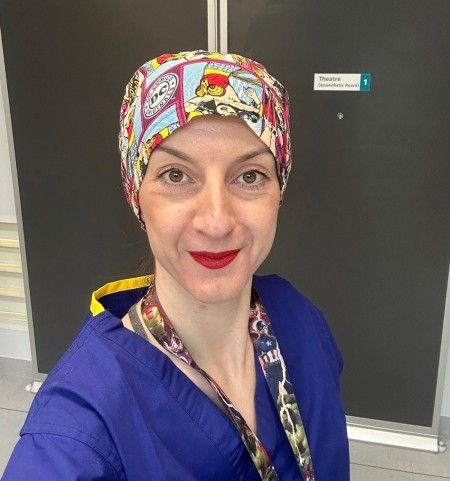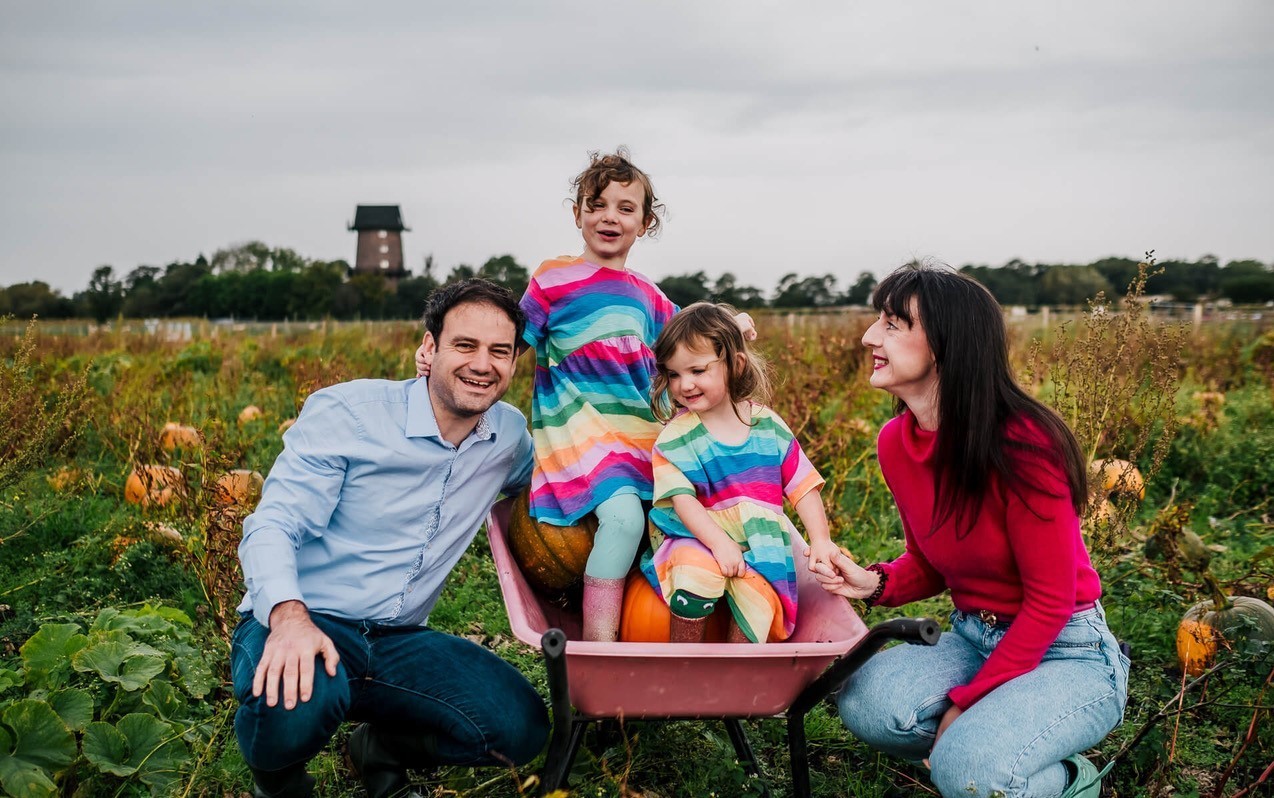
“It’s so important to have inclusivity and diversity, especially in healthcare. By having people from a variety of backgrounds it helps to bring a range of talents and share their experiences so that we reflect the population, and we understand how best to treat all our patients.
“The more women that we have as surgeons the more it will encourage other women. It’s a long training path and it can be long days - one operation can take six to eight hours - but it’s so worthwhile when you see the patients after their surgery. They can go through one of the biggest operations and they’ll be smiling afterwards, our patients are inspirational,” said Andrea, who began her medical training in 2002 and works at the Royal Liverpool University Hospital.
Andrea specialises in Hepato-Pancreato-Biliary (HPB) surgery, which includes the pancreas, liver and bile ducts.
She said: “When I was three years old I asked my parents for a doctor’s set, and as I got older I just knew that I wanted to work in surgery. It’s something I’ve always been passionate about. I’ve worked as a doctor for 16 years and hopefully I’ll achieve my certificate of completion of training (CCT) next year. It’s such a skilled profession that you’re always learning. Even now, I’m training to perform robotic surgery, which is going to be the future of surgery. It will provide less invasive operations for our patients, so they have better recovery times.”
During her training, Andrea got to experience working in different areas of the hospital, including medical wards and the Emergency Department, but it was with the HPB team at the Royal where she found her passion.
“It was the challenge and the variety of the speciality that I loved, along with the future prospect of being able to make a real difference. Hepato-Pancreato-Biliary cancers unfortunately have some of the worst prognoses for patients, as many are diagnosed at an advanced stage, so only around 10% of patients are suitable for surgery. With more funding and ongoing research there is huge potential to improve outcomes for patients with HPB cancers.
“It is this optimism and enthusiasm for change from clinicians and scientists alike that makes it such an interesting specialty. I completed a PhD in Pancreatology, researching the early diagnosis of pancreatic cancer, looking at using secondary screening tests for people who are high risk for pancreatic cancer as well as in patients with hereditary chronic pancreatitis who have higher risks of developing tumours to better understand the progression of the disease. There have been huge advances in vascular resection and radical dissection - which is surgery to remove the lymph nodes along with the tumour - but the more research we can do about the disease, the more opportunities there are to raise awareness and discover better outcomes for our patients.”
Andrea doesn’t shy away from highlighting some of the challenges faced nationally by females in surgery including the surgical equipment traditionally being designed for males, the hurdles of returning to operating after maternity leave, ill-fitting scrubs, as well as the high levels of sexual misconduct reported by the Royal College of Surgeons, which is currently being addressed nationally to improve the culture in surgery.
Andrea said: “Surgery is still a very male dominated speciality, with only around 17% of consultant surgeons are female, and that falls to around 6% among HPB surgeons. I was lucky to have an inspiring female role model in Professor Paula Ghaneh, who’s a Royal pancreatic surgeon and Professor of Surgery at the University of Liverpool - it was so important during my training.
“Now I love the fact that I work with an amazing group of passionate and diligent people, with a range of experienced teams and specialities. We explain to our patients what’s going to happen in clinic and then two weeks later they’re in surgery, so oncologists, gastroenterologists, surgeons, radiologists, nursing, AHPs, dieticians, pre-hab, cancer nurse specialists - we all work together and are all dedicated to providing the best possible care for every patient.”

On a personal level, having daughters aged three and five, Andrea says it can sometimes be a hard work-life balance, but added: “LUHFT has been really positive in wanting to improve our wellbeing and allowing ‘less than full time training’ which gives surgeons a chance to have a better work-life balance. In Merseyside alone around 25% of surgical junior doctors now are in ‘less than full time training’. Having more time at home with my children makes all the difference, whether it’s just running around the sand dunes together, managing to make it to the primary school harvest service, or when my little girl wanted to try horse riding so we both gave it a go, it all helps to maintain a balanced life.
“A career in surgery is really inspiring, seeing the impact it has on someone’s life and their family, is one of the best feelings in the world to know that you and your team have helped make a difference.”
